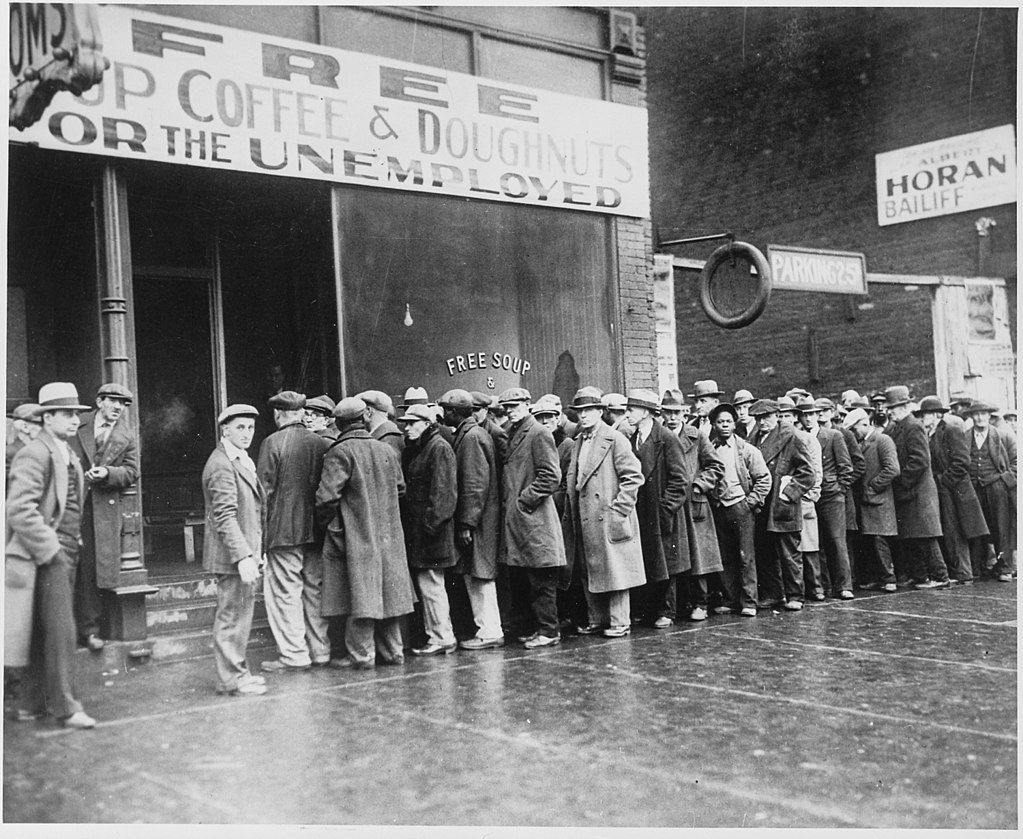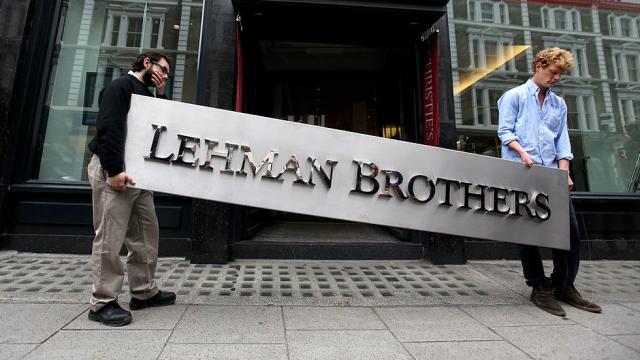The worst financial crashes in history
Finance is a bit of a scary subject and something that is always keeping us on our toes. The value of money and the state of the financial sector has an adverse effect on every aspect of our lives. A financial crisis not only affects the big bank top earners, but also the everyday worker. Throughout history, banks have been known to have made poor decisions which have resulted in worldwide consequences for both the big buck earners and the working class. Below we have put together 3 of the worst financial crises in history, with some surprisingly being quite recent.
The Great Depression 1929-1939

Unemployed men outside a soup kitchen opened by Al Capone in Depression-era Chicago, Illinois, US, 1931
This crash is just as bad as it sounds. Lasting for a decade, it spiralled out of control because of the Wall Street crash in 1929, and was made worse by some poor decisions from the US government. The crash resulted in record high unemployment rates and massive loss of incomes. At the peak of The Depression, unemployment rates in the US hit a shocking high of 25%.
The Financial Crisis of 2007-2008
This was the worst financial crisis since The Great Depression and for most of us (who aren’t approaching 100) it’s the one we will remember most clearly. This crash was triggered by the collapse of the housing market in the US and then the collapse of Lehman Brothers, one of the biggest US investment banks. These establishments collapsing resulted in businesses and banks being brought to the edge of despair, and jobs being lost all over the world along with wiping out billions of dollars worth of income.
The Credit Crisis of 1772
This crisis started in London and then quickly spread over to Europe. After the British Empire had made its fortune through trade and colonialism, it caused the British banks to rapidly expand. This came to a sudden stop when Alexander Fordyce – the 18th century version of the Wolf of Wall Street and one of the top bankers at the time – fled to France to escape his debts. This triggered banking panic all over England, which then spread to Scotland, the Netherlands and then all over Europe.
If finance is appealing to you then why not study Financial Services at CU Coventry, CU London or Professional Accounting at CU Coventry, CU London or CU Scarborough.

